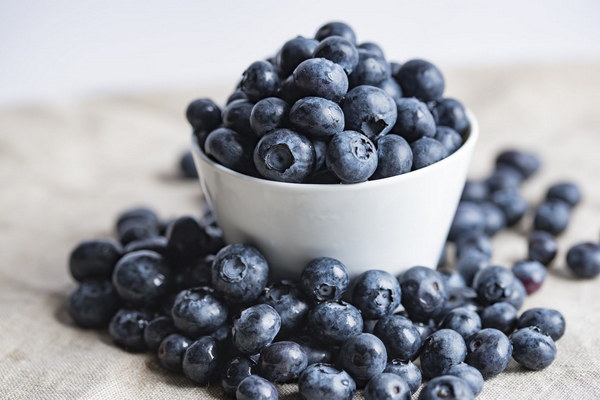Reviving Your Appetite A Guide to Nutritious Foods for Anorexia Nervosa
Introduction:
Loss of appetite, or anorexia, can be a challenging condition to manage, often accompanied by a lack of interest in food and a decrease in the desire to eat. Whether it's due to a medical condition, stress, or simply a temporary loss of interest, finding the right foods to stimulate appetite is crucial. This article explores a variety of nutritious and appetizing foods that can help combat anorexia and promote a healthy diet.
1. Gentle Starters: Light and Easy-to-Digest Foods
When appetite is low, it's important to start with foods that are easy on the stomach and won't overwhelm the senses. Here are a few gentle starters to consider:
- Scrambled eggs: Soft and gentle on the stomach, eggs are a great source of protein and can be easily combined with other ingredients to create a more appealing dish.
- Mashed potatoes: Rich and creamy, mashed potatoes are soothing and can be seasoned with herbs and butter to add flavor without being too heavy.
- Soups and broths: Clear broths or creamy soups can be comforting and are often more appealing when the appetite is low.
2. Nutrient-Rich Snacks: Boosting Energy and Appetite
Snacking can be an effective way to boost energy levels and stimulate appetite. Here are some nutrient-rich snack options:
- Greek yogurt: High in protein and calcium, Greek yogurt is a satisfying snack that can be topped with fresh fruits, nuts, or honey for added flavor.
- Fresh fruit: Snack on slices of fruit like apples, bananas, or grapes, which are naturally sweet and provide essential vitamins and minerals.
- Nuts and seeds: A small handful of nuts or seeds can provide healthy fats, protein, and fiber, helping to keep you feeling full and satisfied.
3. Warm and Spicy Foods: Stimulating the Senses
The warmth and spice of certain foods can stimulate the appetite and make eating more enjoyable. Here are some spicy and warming options:
- Chili with beans: A bowl of chili, seasoned with chili powder, cumin, and a touch of cayenne pepper, can be both warming and appetizing.
- Curry dishes: Spices like turmeric, coriander, and ginger can boost appetite and offer a variety of health benefits.
- Spicy soup: A spicy broth with a mix of vegetables and herbs can be both soothing and stimulating to the taste buds.
4. Hydration: The Importance of Water
Dehydration can contribute to a lack of appetite, so it's essential to stay well-hydrated. Here are some creative ways to make water more appealing:
- Infuse water with slices of lemon, cucumber, or mint for a refreshing twist.
- Try herbal teas, which can be soothing and can also provide health benefits.

- Make smoothies with water as the base, blending in fruits, vegetables, and a touch of honey for sweetness.
5. Comforting and Familiar Foods: Emotional Connection
The emotional aspect of eating should not be overlooked. Comforting and familiar foods can often evoke positive emotions and encourage eating. Consider the following:
- Baked goods: A slice of warm, freshly baked bread or a small piece of cake can be a delightful treat that can help stimulate appetite.
- Pasta dishes: A simple pasta with a light tomato sauce or a creamy Alfredo sauce can be both comforting and appetizing.
- Comfort food classics: Foods like macaroni and cheese, chicken pot pie, or a hearty stew can be nostalgic and can help restore the enjoyment of eating.
Conclusion:
Recovering from anorexia or simply regaining an appetite is a multifaceted process that involves addressing both physical and emotional needs. By incorporating a variety of nutritious and appetizing foods into your diet, and by exploring different ways to make eating enjoyable, you can gradually restore your appetite and lead a healthier life. Remember to consult with a healthcare professional for personalized advice and support during your recovery journey.









